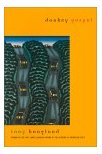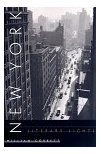|
Contents » Cover | ||
|
Reviews
There's a small independent trade press out of St. Paul, Minnesota, called Graywolf that is publishing some of my favorite books today. Although they publish less than 20 titles a year, it's their range and vision that so appeals to me. Very literary, very natural in premise, Graywolf Press's seasons are mixed between poetry, novels, stories, essays and generally one rediscovery. Their Spring 98 list, now coming to an end, boasts seven titles, the most esteemed being The Way It Is: New & Selected Poems, by William Stafford. Their backlist includes Burning Down the House, essays by Charles Baxter; Otherwise: New & Selected Poems, by Jane Kenyon; several fiction titles from the under-acclaimed Percival Everett; as well as several titles by William Kittredge. Recent standouts include the debut novel A Four-Sided Bed, by Elizabeth Searle. It's the story of Alice and JJ, young newlyweds with a fiery sex life. But Alice soon learns she knows less about JJ than she thought. She finds several letters from Kin and Bird, two people from JJ's past. What Alice doesn't know is the extent of JJ's past with the two, but she begins to make guesses after seeing the quick decline of their relationship. The letters attempt to lure JJ away from the present to the past and the feelings they each felt for the other as sexually-experimental patients in a Massachusetts psycho ward. It all comes to a boil when Alice confesses her thievery and drowns JJ in questions. To make things worse, Alice's latest EPT is positive. All explained, even with a bun in the oven, JJ can't help but heed the delicious duo's call. But what Alice doesn't know is that Kin is literally decaying from AIDS. In a stunning final scene, JJ's final contact with Kin becomes a supreme act of last rites, an act Alice may not ever be able to understand. On the other side of the spectrum is the poetry of Tony Hoagland. Donkey Gospel, not the name of a poem in the collection, won Hoagland the 1997 James Laughlin Award. It's the gospel of an ass. If there's such thing as the non-poet's poet's collection of poems, well, he and this is it. There are rednecks swilling suds, a mother-sighting in a lesbian bar, a request between lovers to improve on oral sex, and a man praising the person who taught him the word dickhead. The collection is amazing by right of all it accomplishes in such few words—without making you feel like an idiot. One minute it's outloud hilarious, at another it's heart-pinching, and at still another it makes you believe you can find a universe in a fingernail. Probably the best poem in the mix is "Fred Had Watched A Lot of Kung Fu Episodes." It starts out:
so when the policeman asked The last book I want to mention is New York Literary Lights, an A-to-Z guidebook of the what, when, where and who of Gotham's literary history, compiled by Grand Street poetry editor William Corbett. Though mostly biographical encyclopedia (from Agee to Zukofsky), it's also part cultural sourcebook (from the Beats to the Yiddish Poets), part historical document (from the first printing press in 1693 to the Village Voice's debut in 1955), part Yellow Pages (from the Algonquin to the Writer's Room), and part walking tour map charting the streets between the Chelsea Hotel of Dylan Thomas's stupor days to the West End Bar & Grill of Kerouac's Columbia days. Interesting asides include the fact that Edward Albee got the name for his play Who's Afraid of Virginia Woolf? from graffiti scribbled in a now-defunct Greenwich Village bar. The barroom anecdotes aren't to be missed in this one; they serve as a gentle reminder that many of New York's watering holes are frequented by great drinkers with bad writing problems.
|
|||||||||||


